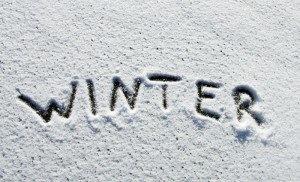Around this time of year, the chimney often goes unnoticed. With everyone headed inside the escape the chilly winter weather, the chimney is left in the cold to fend for itself. While the robust brick structure may seem able to withstand any weather, masonry chimneys can actually suffer irreparable damage during the winter months. Fortunately, there are some measures that can be taken now to prevent more damage in the future.
Masonry chimneys are chimneys constructed using masonry materials, which include brick, mortar, concrete and stone. All of these materials, aside from stone, have a very porous nature, which means they easily absorb any water that touches them. Similar in function to a sponge, the bricks and other materials can soak up moisture until they reach complete saturations. While the absorption of water does little damage by itself, the trouble begins when the temperature drops below freezing. In sub-freezing temperatures, water begins a freeze and thaw cycle in which it continuously expands and contracts as it freezes and melts, respectively. When the water inside the masonry materials starts this cycle, the materials also experience that same shrinking and swelling movement. Over time, this motion degrades the strength of the materials. The first signs of a weakened chimney include cracked mortar or missing bricks, but eventually the entire structure could fall. To prevent this, a chimney specialist can patch the mortar by tuckpointing and apply a certain permeable sealant to the outside of the chimney to prevent water from entering the structure.
The other winter problem that occurs with the chimney also revolves around water damage. The warmth of the chimney can melt snow and ice at the top of the chimney, permitting water to leak inside. If the flue lining is made of metal, the water can rust out the lining, leading to cracks and holes. This break in the lining exposes the combustibles in the house to the heat of the fire, and it allows the toxic fumes to leak back into the home. Potential hazards of this include house fires and carbon monoxide poisoning. In addition, the water can rust out the damper, which may prevent proper ventilation of the fumes. Water damage may encroach further, as well, which would be evident by the presence of water stains on the walls and ceiling surrounding the fireplace. A chimney specialist can stop this damage from happening by repairing or replacing the chimney crown, if one is present, and installing a proper chimney cap to stop water from entering the chimney.
Prevention is key to avoiding these costly damages, so take the extra time to ask your chimney sweep or inspector about protecting your masonry chimney. For a professional consultation in the Boston or Portland areas, contact Billy Sweet Chimney Sweep.

